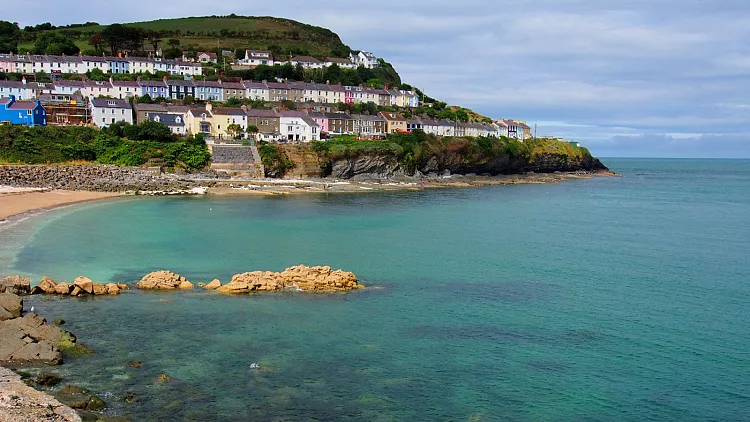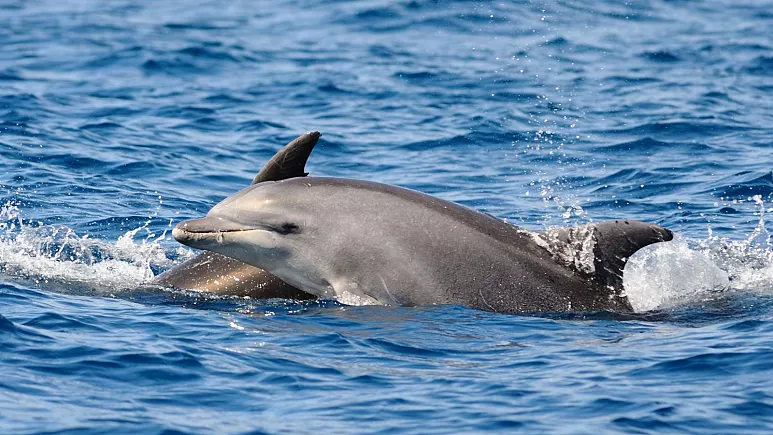Protected species in the River Teifi and Cardigan Bay have been subjected to the detrimental impact of untreated sewage discharges for an extended period.
Welsh Water, a UK water company, has confessed to the illegal discharge of untreated waste at numerous sites, a revelation prompted by the BBC’s analysis of the company’s data. Among the identified problematic facilities, a particularly notorious plant is situated in the town of Cardigan in west Wales. Professor Peter Hammond, a mathematician who scrutinized the data, described it as “the worst sewage works I’ve come across in terms of illegal discharges.”
Regrettably, the outflow point from this treatment plant directly spills into the Teifi estuary, a habitat designated for Atlantic salmon, lamprey, and otters. The River Teifi, encompassing this estuary, is safeguarded as a Special Area of Conservation (SAC).
From the Teifi estuary, the untreated sewage then finds its way into Cardigan Bay, a crucial habitat for approximately 300 bottlenose dolphins. This revelation raises significant environmental concerns, particularly given the ecological sensitivity of these areas.
The practice of water companies releasing untreated sewage, purportedly during extreme weather through storm overflow pipes, has come under scrutiny. Recent investigations suggest that water companies are exploiting these overflows to discharge sewage even during mild conditions, an action deemed illegal. Disturbingly, data indicates that raw sewage was released into English rivers 825 times a day last year.
Cardigan plant spilled sewage for over 1,000 days in 5 years

The Cardigan plant, singled out as a major source of concern, has been flagged by Professor Hammond, who is part of the campaign group Windrush Against Sewage Pollution (WASP). Analyses of data provided by Welsh Water reveal that the Cardigan plant consistently failed to treat sewage to the required standards. According to its permit, the plant should treat 88 liters per second before any spillage, yet it illegally spilled untreated sewage for a cumulative total of 1,146 days from the start of 2018 to the end of May 2023.
Welsh Water has acknowledged the accuracy of this analysis and asserts that it is actively working to rectify the problem. The company has admitted that nearly 50 wastewater treatment plants are currently operating in violation of their permits, with a commitment to prioritizing improvements that will alleviate customer bills.
Despite Welsh Water’s assurance of “no measurable environmental impact” from the Cardigan estuary spills, environmental groups dispute this claim. Gail Davies-Walsh of the rivers campaign group Afonydd Cymru highlighted the adverse effects of untreated sewage on rivers, leading to algal blooms, oxygen depletion, and subsequent impacts on fish populations and other species.
Cardigan Bay, designated as an SAC under the EU Habitats Directive, boasts unique habitats and marine wildlife, including bottlenose dolphins, harbor porpoises, and grey seals. As the largest bay in the British Isles, it provides an ideal habitat for bottlenose dolphins to give birth to their calves annually.
The regulator overseeing Welsh Water, Natural Resources Wales (NRW), has been aware of the issues at Cardigan for eight years. While enforcement notices have been issued, fines have not been imposed, prompting criticism from environmental campaigners. NRW acknowledges that the issue at the Cardigan plant is now “unresolvable without significant investment and upgrading of infrastructure by Dŵr Cymru Welsh Water.” This underscores the necessity for substantial investment to address the systemic problems leading to untreated sewage discharges.
The challenges faced by the Cardigan plant are intricately linked to the use of a membrane to filter sewage, an unusual system installed in 2004. The intrusion of saltwater into the pipes and plant triggers bacterial enzyme release, blocking the membrane and causing system backups. Welsh Water acknowledges the issue’s connection to saltwater and has reported plans to invest £20 million in 2025 to ensure full compliance with discharge permits, signaling a commitment to rectifying the long-standing problem.
